Moon Sports > Basketball > Believe it or not! The Cavaliers lost to the Pacers 1-4, reflecting the team s five major problems!
Believe it or not! The Cavaliers lost to the Pacers 1-4, reflecting the team s five major problems!
In the just-concluded NBA Eastern Conference semi-finals, the Cavaliers, who performed well in the regular season, were eliminated by the Pacers with a score of 1-4 and missed the Eastern Conference Finals. This result is surprising, after all, the Cavaliers achieved a brilliant record of 64 wins in the regular season and ranked second in the league. What exactly caused the Cavaliers' defeat? Let’s analyze the five major problems exposed by the team.
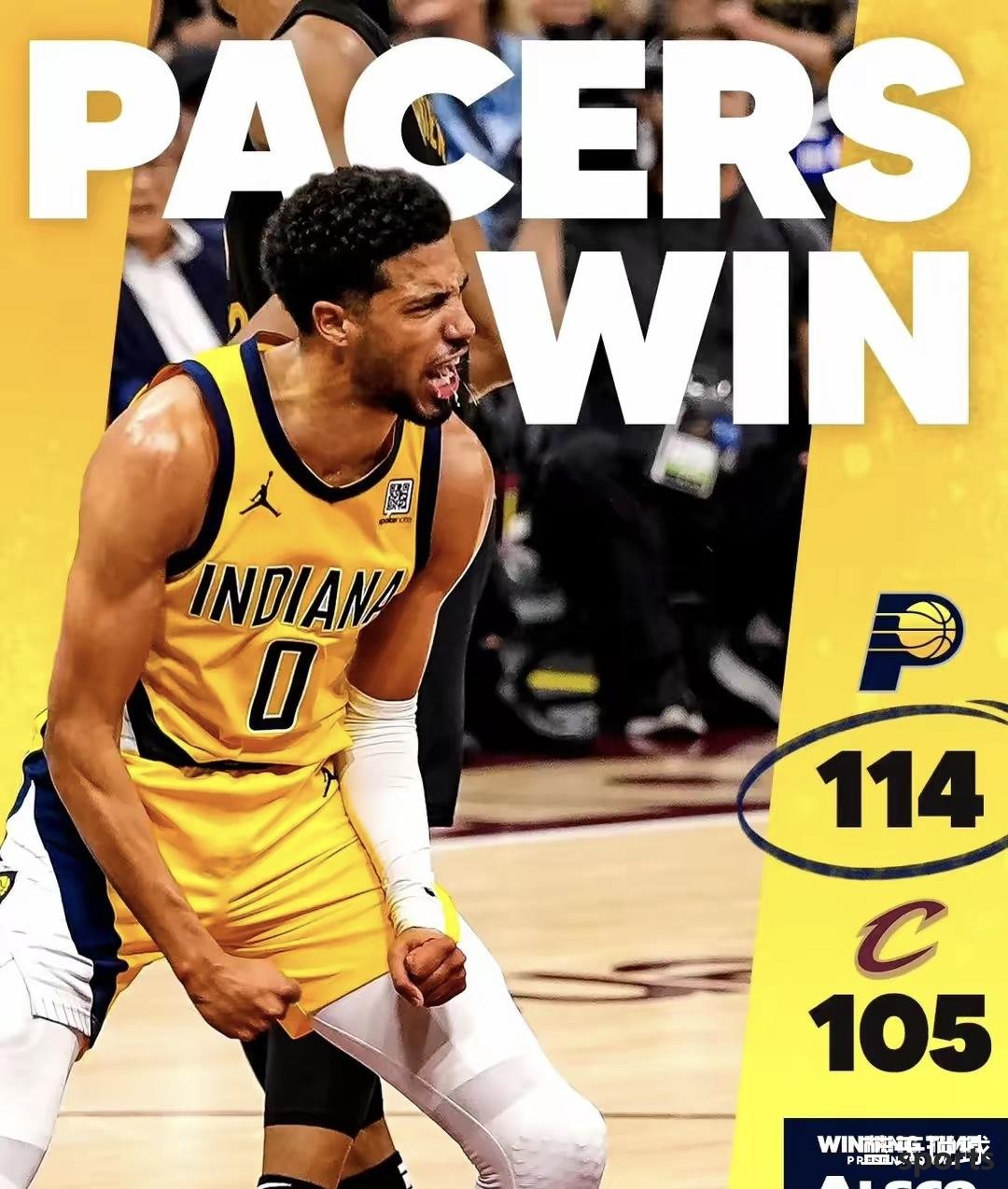
1. Over-reliance on single cores and imbalance in offensive system
Mitchell is undoubtedly the Cavaliers' biggest reliance this season. In this round of the series, he averaged 28.5 points per game, which is the team's most stable scoring point. In G3, he scored 43 points alone, leading the team back to a goal. However, over-reliance on Mitchell also made the Cavaliers' offensive system single. Once Mitchell is under the opponent's focus on defense or is in poor condition, the team's offense will be in trouble. In G4, Mitchell sprained his left ankle and his condition declined. The Cavaliers' offense was also in silenced. He scored only 39 points in the first half and fell behind 41 points, setting a record for the largest half-game score difference in the playoffs history. Except for Mitchell, other Cavaliers players have not performed well on the offensive end. As the second in command of the team, Garland averaged only 14 points per game in this round of the series, with a shooting percentage of 34.2%, and a three-point shooting percentage as low as 16.7%. He made frequent mistakes, and averaged 4 times per game. Other role players also failed to give Mitchell enough support on the offensive end, resulting in the Cavaliers often falling into a single-handed situation on the offensive end and lacking effective team cooperation.
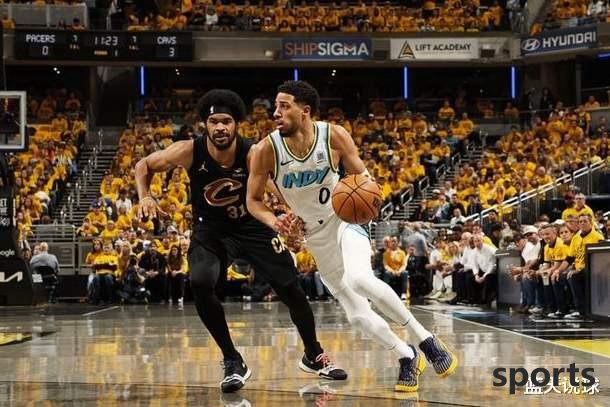
2. The defensive system collapsed and there were many loopholes. During the regular season, the Cavaliers' defensive efficiency ranked first, with averaging only 108.5 points per game. However, in the playoffs, facing the Pacers' fast offensive and defensive conversion and outside shooting, the Cavaliers' defensive system completely collapsed. Halliburton, the Pacers' core player, performed well in the series, especially in G5, who scored 31 points and 8 assists, which made the Cavaliers' defense lose the other way, whether it was organizational offense or personal breakthrough. The Cavaliers also performed weakly in the interior franchise protection and could not effectively limit the Pacers' Turner and Siakam. The two men scored frequently in the interior and grabbed key rebounds many times, creating opportunities for the Pacers' second offense. The Cavaliers also have problems when defending the outside three-pointers, often leaving the opponent with open shots, giving the Pacers a three-point shooting percentage of up to 40.4%, which undoubtedly gave the opponent a fatal "ammunition".
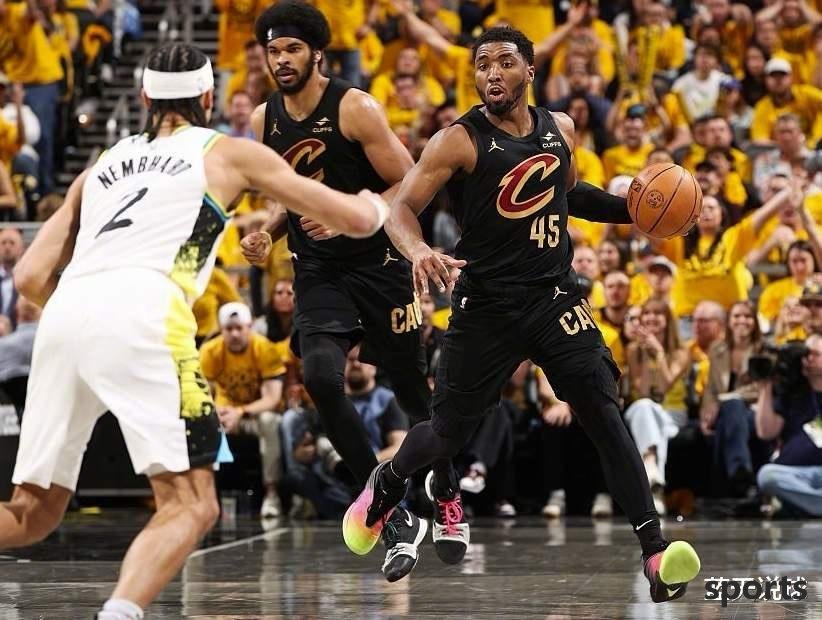
3. The substitute depth is insufficient and the bench is weak. In the playoffs, the performance of substitutes can often become a key factor in determining the outcome of the game. However, the Cavaliers’ substitute’s performance in this series was disappointing. Take Ty Jerome as an example. His performance in G2 and G3 is a disaster. He made only 2 of 22 shots on the offensive end, and the defensive end has also become a loophole for the team and cannot provide effective help to the team. Over the entire series, the average score of the Cavaliers substitute players was only 11.6 points per game, which is a huge gap compared to the average of the Pacers substitute players. The Pacers' substitute players are able to actively compete on the field, providing stable scoring and defense, making an important contribution to the team's victory. The Cavaliers' bench seems deserted and cannot stabilize the situation or expand the advantage when the main players are resting.
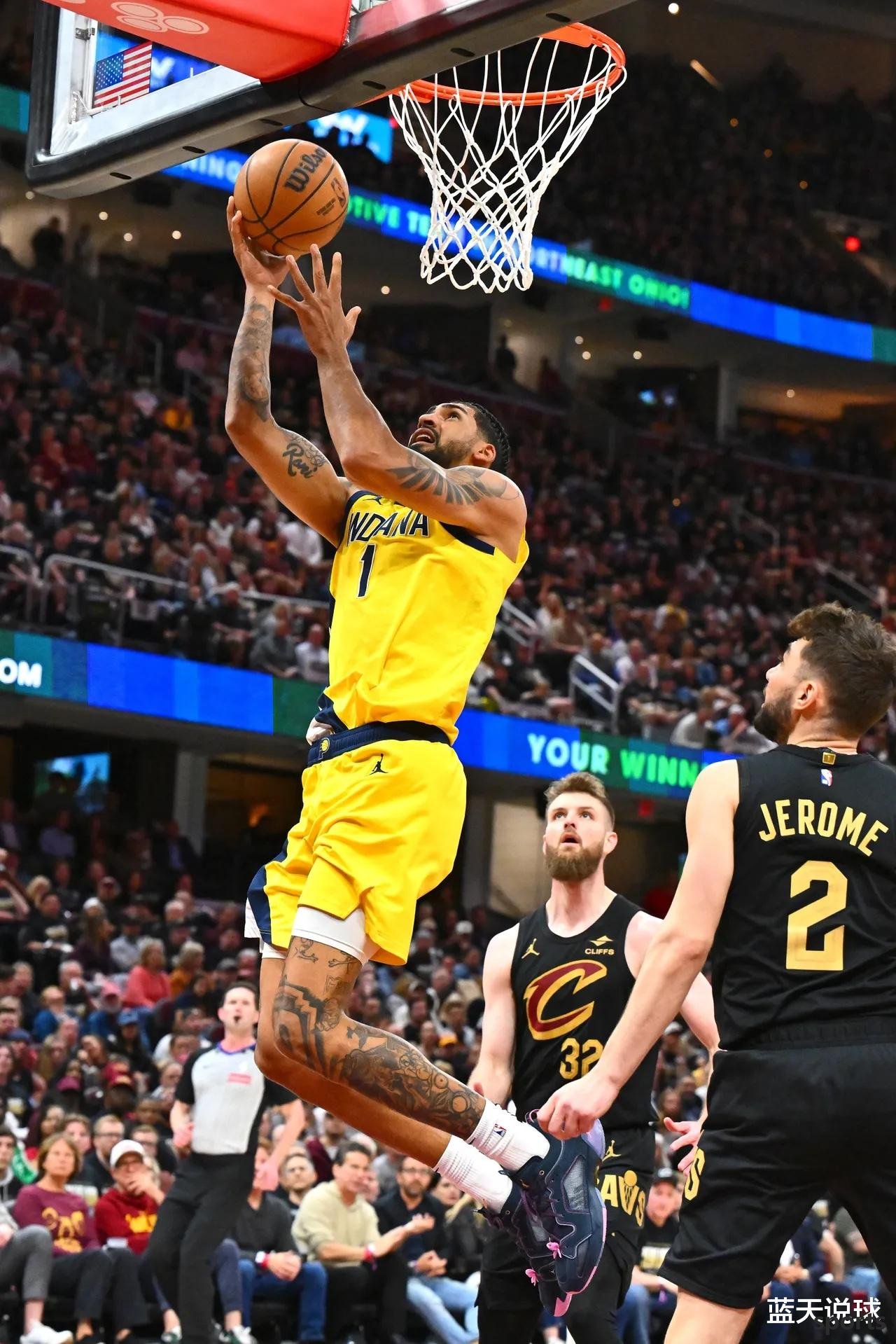
4. The tactics were targeted, and the coaching team of the Pacers had obviously done a full study of the Cavaliers and arranged the tactics in a targeted manner in the series. They adopted the "two towers to exchange defense" strategy to limit the Cavaliers' outside offense, forcing Mitchell to fall into a singles, and cut off the Cavaliers' team cooperation. Faced with the Pacers' targeted defense, the Cavaliers coach failed to make effective tactical adjustments in time. During the game, we often see that the Cavaliers players cannot find effective phone calls on the offensive end, and can only barely take action, resulting in a low hit rate. On the defensive end, the Cavaliers were unable to deal with the Pacers' fast offense and flexible tactical running, and were defeated by their opponents. In terms of tactical response, the Cavaliers are clearly at a disadvantage compared to the Pacers, which is one of the important reasons why they lost the series.
5. Players are suffering from injuries and doubts in health management
Injuries have always been a major problem that has troubled the Cavaliers. In this round of the series, main players such as Mitchell, Mobley, and Garland were affected by injuries to varying degrees. Mitchell sprained his left ankle in G4. Although he played with an injury in G5, his condition was obviously affected. He missed a series of free throws at the last moment of the game and missed the opportunity to equalize the score. Mobley and Garland returned from injury early in the series, but were not in the best form and could not play their full strength in the game. The Cavaliers' injury problem not only affects the players' performance on the field, but also exposes the hidden dangers of the team in health management. During the regular season, the team may pay too much attention to the record and ignore the players' physical load and injury prevention, which leads to problems in the players' physical condition at critical moments in the playoffs, which affects the team's competitiveness.
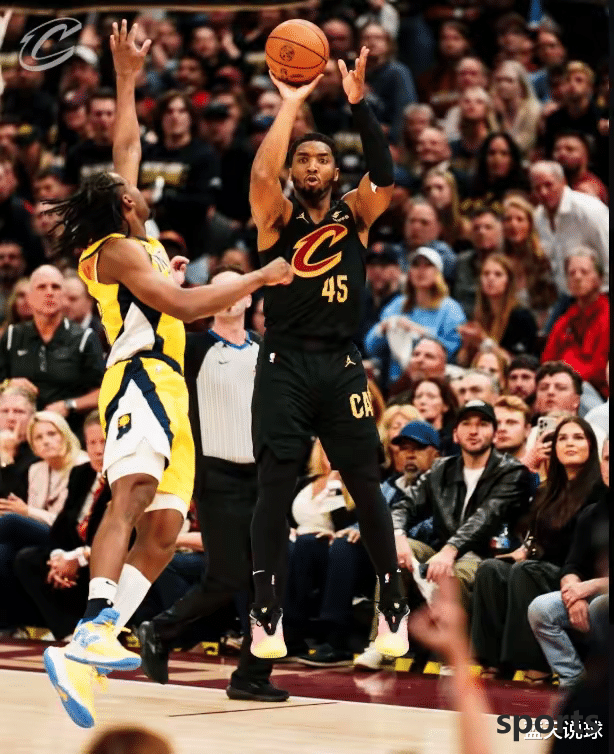
From the unlimited glory of the regular season to the early exit of the playoffs, the Cavaliers' season has undoubtedly opened high and closed low. This series of failures has made the team's management and coaching staff reflect on how to solve these five major problems that the team has. Should we build a more balanced lineup around Mitchell, or should we improve the team's defensive system and tactical resilience? Or should we strengthen the health management of players and the depth of the substitute lineup? These are all issues that the Cavaliers need to consider during the offseason. Only by solving these problems can the Cavaliers go further in the coming season and regain their glory.
Like + follow the editor to bring you the latest NBA consultation and game predictions!
Related Posts
TA selected the top ten wonderful moments of the 21st century: James ranked first in the tiebreaker with 81%; Kobe ranked second with 81
BasketballNovember 22nd, the American media TheAthletic selected the top ten NBA moments since the 21st century. Among them, James ranked first with his biggest shot in G7 of the 2016 Finals, Kobe's 81 points ranked second, and Ray Allen's corner thre...
moreThe Mavericks are preparing for a major overhaul. The player supermarket has opened, and many main players have been put on the shelves. They will rebuild around the No. 1 pick.
BasketballThe Dallas Mavericks have had a devastating start to the season. In fact, at the beginning of the season, the outside world was relatively optimistic about the Mavericks. With the addition of the No. 1 pick, and no injuries to the team, they were al...
moreCollins started 6 games, averaging 9.3 points, 4.5 rebounds and 0 assists, shooting 40.7%% from the field and 13.3% from three-point range.
BasketballHupu News November 21st NBA regular season, the Clippers lost to the Magic 101-129 and suffered a three-game losing streak. In this game, Clippers player John Collins made 4 of 8 shots, 0 of 1 three-pointers, scored 9 points, 4 rebounds, 1 steal, 1...
more
Hot Posts
- Best Rookie? No. 4 overall pick Knipur, how amazing is he?
- Carter Jr.: We know what Blake is capable of and the team is stronger when he stays aggressive
- Seth Curry - Brothers on the same stage, Seth fights for the championship
- Anthony is officially inducted into the Hall of Fame! Maybe he only retired from the Knicks No. 7, but the Nuggets No. 15 cannot retire?
- NBA offseason turmoil: The giant chess game behind a billion-dollar contract
- Scott: Tatum seems to die when his Achilles tendon breaks, but Kobe will never do this
- American News: The Cavaliers don t need to trade core players such as Garland. They still have great potential if they are not the Lakers.
- Successfully played the role of the surprise! The Pacers forward performs amazingly in overtime?
- Questioning the Mavericks to Becoming the Mavericks! Famous reporter: Antetokounmpo is on his way to the Lakers
- Homegren burst! Thunder 149-106 Nuggets, Alexander watches 34+4+7, Harten 14+8+5
Recent Posts
-
4-4, Zhao Xintong vs. Rockets, two fast gunners, tied in the first stage
-
Lin Wei went to the United States to try out the Mavericks! Give up the National Games and aims at the NBA, two-way contracts become key goals
-
Breaking the NBA record, Rockets 7-party big deal officially announced! Durant changed to wear No. 7 to lead the 14+2 grand formation
-
Drummond: Cunningham is very good, it is difficult to continue to limit this kind of player for 48 minutes
-
In the absence of the great emperor, the new three giants scored 94 points to win consecutively! The third overall pick 26+7 has a strong momentum. Will George be the fourth player in the future?
-
Interesting story of the national table tennis team: Big Head goes from going to the sun to hiding from the sun, Sasha turns into a "diplomat"
-
SGA caused Gobert to foul! Commentary: This is why he is called the master of prisoners
-
Mazzula talks about Walsh: What stands out the most is his hard work on the defensive end, and his condition is getting better and better.
-
The Clippers are seen as bad at the tiebreak! But more data are beneficial to them. Tyron Lue s career is 4 wins and 0 losses, which is a lucky star
-
Lakers No. 1 Lakers No. 36 Adu Tiero will wear No. 1 jersey in the new season